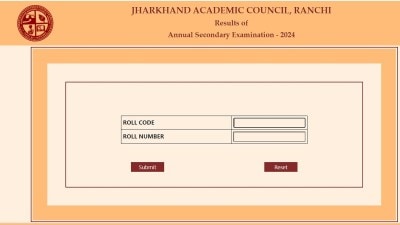- India
- International
Removing ‘Abide with me’ from Beating Retreat legitimises politics of exclusion
The deletion of this hymn is an issue; but it is hardly a Christian issue. It is a problem and that problem pertains to the “India of our dreams”. It is, on the contrary, a shot in the arm for those who endorse the New India in the making, the hallmark of which is hostility to alterity or otherness.
 From the Beating Retreat ceremony, 2016 (Express photo by Ravi Kanojia)
From the Beating Retreat ceremony, 2016 (Express photo by Ravi Kanojia)
We shall beat the retreat differently this year. The universally loved hymn, Abide with me, by Henry Francis Lyte and set to the tune of Eventide by William Henry Monk, shall not be heard in the eventide of January 29. The secret of the enduring appeal of the hymn, which Alfred Lord Tennyson deemed worthy enough “to rank among the really perfect poems of the English language”, is that it embodies the universal human longing for companionship in perilous situations such as the soldiers, more than others, face. But, it is a Christian hymn. Also, its incorporation into the solemn ceremony has a colonial background — like the railways, postal service and many an aspect of our legal system and governance.
So, it offends that in Narendra Modi’s New India, an ingredient of Christian flavour remains like a colonial relic in a solemn national ceremony. The deletion of this hymn is an issue; but it is hardly a Christian issue. It would be hypocritical for Christians to sound aggrieved for the reason that most Christians hardly values it. Of course, the hymn is still sung on occasions, but the less said about how hymns are sung, the better. No one pays heed to what hymns mean. No one feels their lyrical, spiritual, emotional value. So, this does not bother me as a Christian problem.
But it is a problem and that problem pertains to the “India of our dreams”. It is, on the contrary, a shot in the arm for those who endorse the New India in the making, the hallmark of which is hostility to alterity or otherness. The India of our dreams was, in contrast, hospitable to alterity. In the emerging scheme of things, the core Hindu value of hospitality — openness to the “other” as distinct and different from oneself — was a basic dharma. The right thing was not to thrive by excluding or subjugating the other, but by co-existing harmoniously with all. Admittedly, we have been remiss in taking for granted this value in a multi-religious society and secular society. We did little to nurture or promote it. So, hospitality to otherness ceased to have ethical vibrancy. The idea of tolerance became sterile.
Editorial | ‘Abide with me’ is so resonant, has struck so many echoes. Is it even possible to banish it?
Emmanuel Levinas, who narrowly escaped the Holocaust — he lost his parents, siblings and grandparents in the Nazi ethnic cleansing — points out that to move from an outlook of allergy to alterity, for one to feel at home in the given national context, one has to “possess” the nation. The state of “possessing” remains incomplete and unstable until all manifestations and markers of otherness are nullified or eradicated. This psychological compulsion, and the cacophony of its operations, are now in evidence. So, the candidates list in various BJP-dominated states were sanitised of otherness. This latent process of “exclusion” was followed up with measures of discrimination. This explains, besides, the sense of power and consolidation in re-naming cities, roads and, in due course, monuments. The significance of the exclusion of the hymn is metaphoric. The problem is not that a hymn is excluded; the problem is that the principle of arbitrary exclusion is legitimised.

But this allergy to otherness is not exclusive to Hindutva. Muslims and Christians are the alter egos of Hindutva in this respect. I took a stand, two decades ago, against conversion and advocated a moratorium on it. I was troubled by its underlying attitude. Conversion is, in theory, a liberating outreach to victims of socio-cultural exclusion. But, in practice, it reeks of negativity to otherness. It is more the excitement of facilitating a shift from a different religious constituency to one’s own. The conversion of an affluent and influential gentleman is a greater hit than the conversion of a subaltern. Also, the demographic and political dividends of conversion matter more than its religious worth. The proof? Well, converts lose their value soon after conversion. They remain discriminated against within the Christian community.
The vision of the Constitution of India has an instinctive hospitality to otherness, which is the essence of pluralist democracy. The values foregrounded in the Preamble — liberty, equality, fraternity, justice — hinge on alterity. India as unity-in-diversity is now under challenge and not merely at the political level. A new paradigm — unity as hostility to diversity — is on the rise. A hymn is in retreat; let it be. A way of living together as “We, the people of India” also is. That matters.
This article first appeared in the print edition on January 23, 2020 under the title ‘A Hymn In Retreat.’ The writer was principal of St Stephen’s College, Delhi
EXPRESS OPINION
More Explained
Apr 19: Latest News
- 01
- 02
- 03
- 04
- 05









































